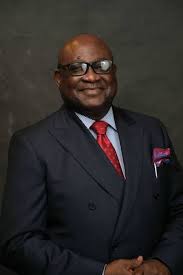The Group Managing Director of SO&U, Udeme Ufot, has called for intentional and well-structured financing to serve as a major driver for unlocking Nigeria’s creative economy. Ufot made this appeal during the QEDNG Powerhouse Summit themed “Financing as Catalyst for a Thriving Creative Economy,” organised by Mighty Media Plus Network Limited and QEDNG.
The event, held in Lagos, brought together policymakers, financiers, creators, and media leaders to discuss ways of addressing the funding challenges facing the creative sector. Speaking at the summit, Ufot said that despite the creative industry’s vibrancy and resilience, lack of proper financing remains the biggest obstacle to its growth.
“The creative industry in Nigeria is one of our most vibrant and resilient sectors,” he said. “Yet, despite the abundance of talent and the undeniable economic value of creativity, financing remains the single biggest roadblock. Without sustainable and strategic funding, ideas remain trapped in notebooks, studios shut down, and potential is lost.”
Ufot stressed that funding for the creative sector must be smart, flexible, and production-driven. He explained that it should be designed to help scale creative enterprises, protect intellectual property, and create jobs. He also called for the creation of financial products that meet the unique needs of creatives, alongside government policies that reward innovation and calculated risk-taking.
He noted the need for reliable data to prove the industry’s social and economic importance, which would encourage more investors. Ufot also urged creative professionals to invest in personal development, gain financial literacy, and adopt good business management practices to prove they can handle funds effectively.
“This is not about throwing money at the industry,” he said. “It’s about smart financing that matches the realities of creative work. We must ask how to de-risk investment in the sector, which global financing models can work here, how to protect intellectual property in the digital age, and how to ensure the next generation has the tools, skills, and capital they need.”
To tackle the funding gap, Ufot proposed the creation of a nationwide creative investment fund, stronger policy frameworks, and collaborative platforms to sustain growth beyond one-off events like the summit.
He stressed that creativity is more than entertainment, describing it as a source of identity, influence, and industry. “If we wish to diversify Nigeria’s economy and empower our youths, investing in creativity is not a luxury; it is a necessity. It is a low-hanging fruit that can transform our bulging youth demographics into a great national asset,” he concluded.
The QEDNG Powerhouse Summit served as a platform for stakeholders to share ideas and explore solutions to unlock the full potential of Nigeria’s creative sector. With the government seeking to diversify the economy and tackle youth unemployment, investing in the creative industry is increasingly being seen as a strategic path to growth.
